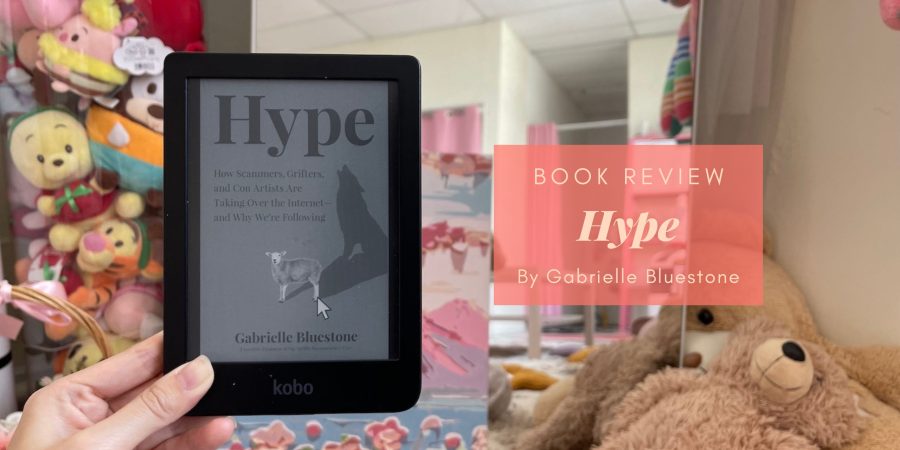I did not plan out my books properly. If I had, I would have read this right after The Accidental Influencer, since Hype (being about scammers and grifters), also talks a lot about influencers and it would have been interesting to consider the two books in tandem.
Hype is an ambitious book, trying to explain “how scammers, grifters, and con artists are taking over the internet and why we’re following”. It’s tied together by the Fyre festival. As it traces how the Fyre festival came into being, Bluestone takes a lot of side trips to visit other “influencers”, including Caroline Calloway, to discuss more broadly why and how we are being influenced. It’s an interesting approach to take – if you’re expecting a book about Fyre festival, you may be frustrated by the amount of non-Fyre festival material, and if you’re looking for your particular internet scammer, you may wonder why Fyre festival gets so much airtime compared to whoever you were looking to read about. And if you’re not at all familiar with internet drama, a lot of this book is going to confuse you.
“[F]or most of us, social media isn’t just another messaging program. It’s long since morphed into an extension of the physical identity, a digital résumé of one’s personality.”
From the introduction of Hype
My overall impression of this book was one of disorganisation. It’s possible that this is because I didn’t follow the Fyre festival very closely, but I’m not convinced that using Fyre festival as the backbone of the story works. Like I mentioned at the start of the review, it can be confusing to those who are not in-the-know when it comes to internet events. And perhaps more disappointingly, some of the discussions seem only tenuously related to what’s happening at the Fyre Festival as described at the start of the chapter.
At times, the book also falls flat. For example, someone mentioned people scamming their way into events as “class warfare, where people from Caroline Calloway to Anna Delvey are at the front.” Given that Caroline Calloway had a pretty substantial section in the book and given that she’s generally assumed to have a priviledged upper-middle class background, I’m not too sure how she’s at the front of a war on class. In an earlier chapter, someone talking about PR and the lack of scepticism in the journalism community is described as calling from “his golf cottage, where he’s been riding out the pandemic.” It reeks of privilege and detracts from the content of the book.
On the other hand, the book does make some pertinent observations on social media. I quite like this description of posting, which describes every post as “an advertisement of our personalities that we’re opening someone might deem worthy of an investment of a like or a comment.” I think this explains the anxieties that arise from posting on Instagram and is something that Bella Younger describes in detail in her book.
In the end, I wished for more meditations on social media and how its influencers affect us. However, the book ends with the next scam that McFarland, the founder of Fyre Festival, tries to carry out. That’s keeping in line with the “scammers” section of the subtitle, but I would have preferred for the book to end with the “hype” it’s named after. After all, scams come and go, but the psychology behind them stays the same.
P.s. I found this book via Siena @ The Literary Escapade. Check out her review for another opinion on Hype.

Ah, I’m not most aware of all internet dramas so I wouldn’t have a clue what this book is saying.
Oh, you would be very confused! I think it’s for the subset of people who are very online (like me hahaha)